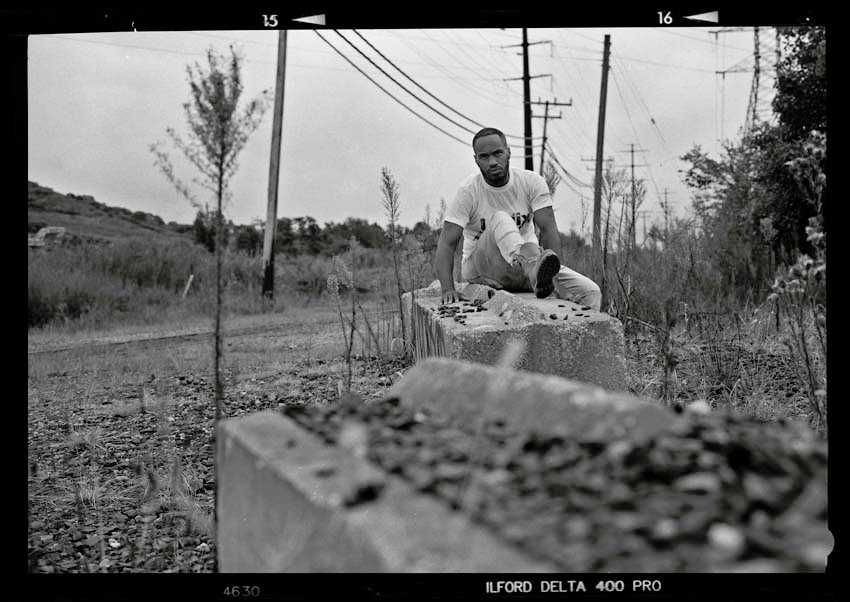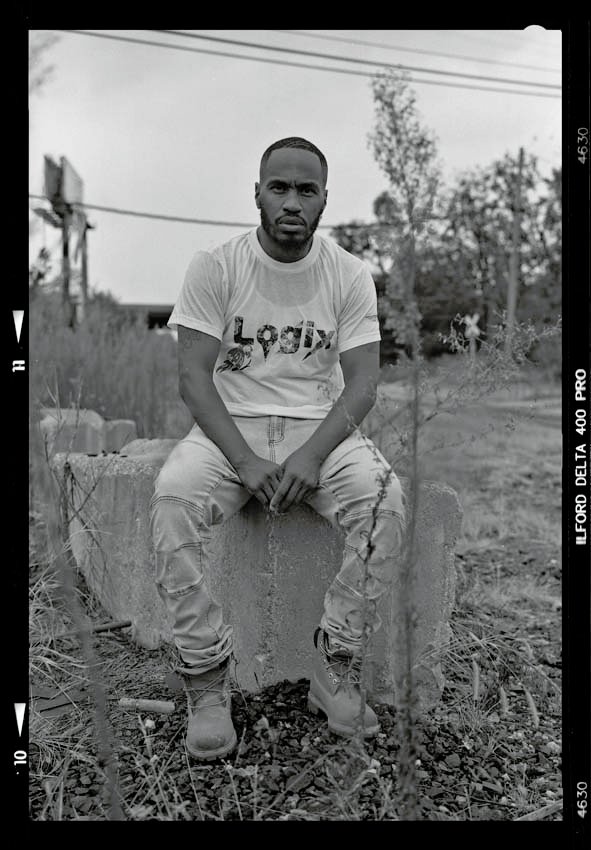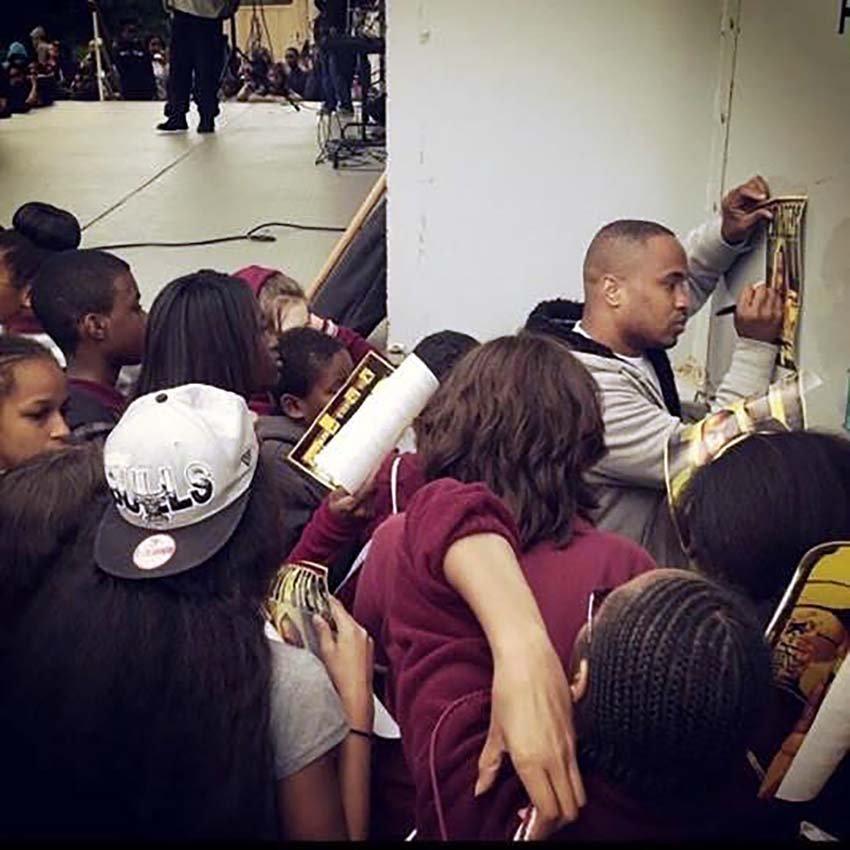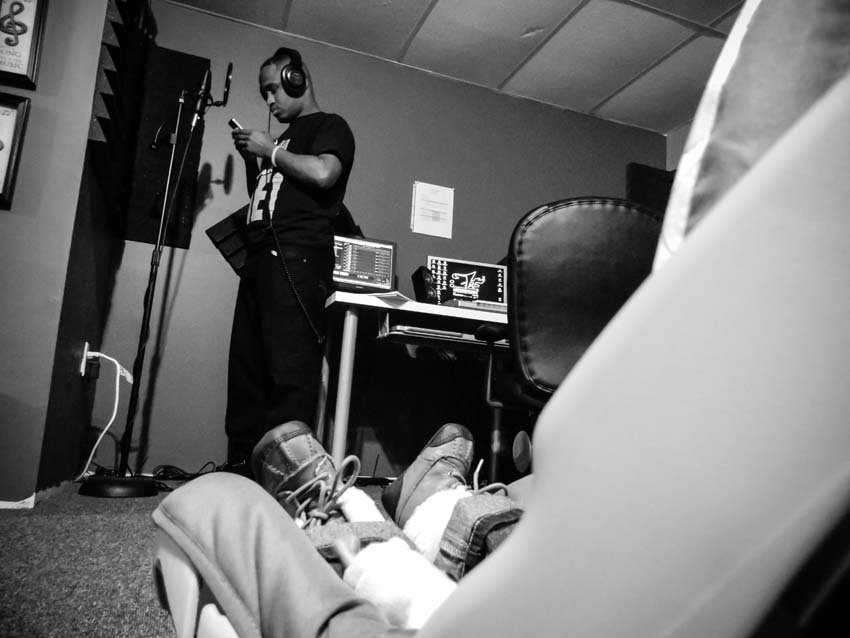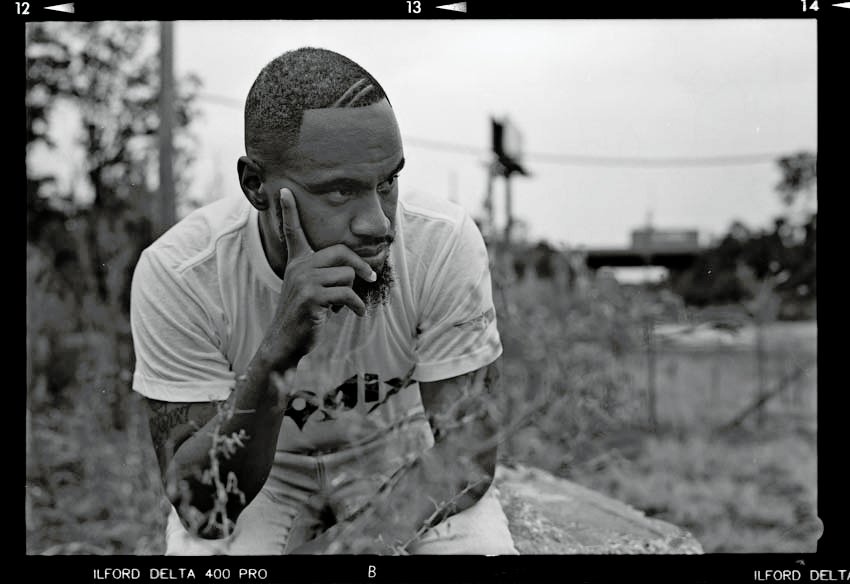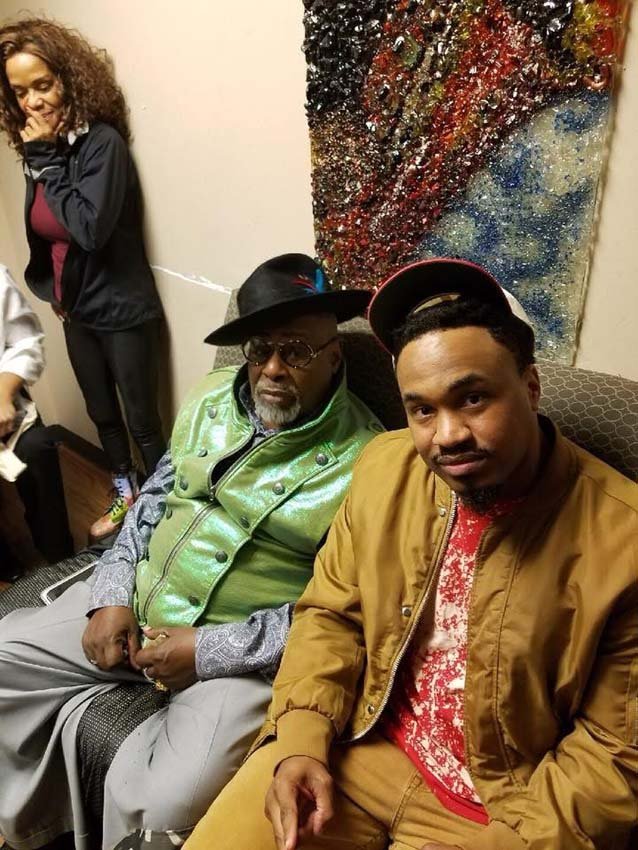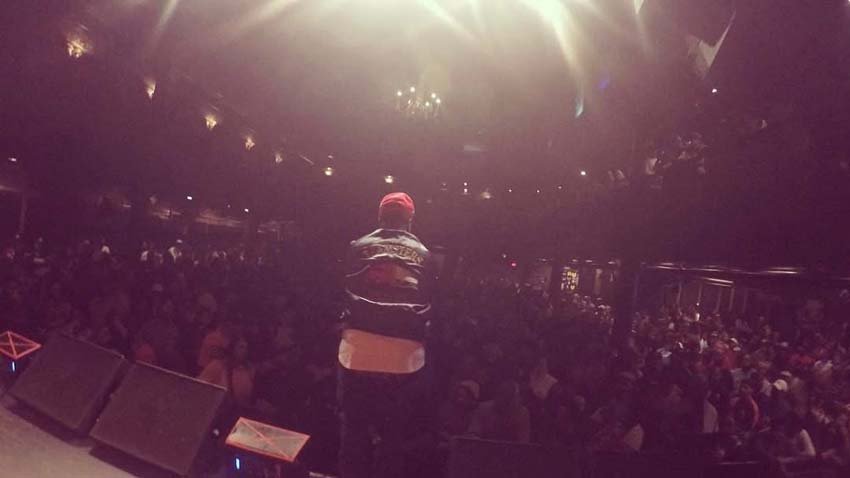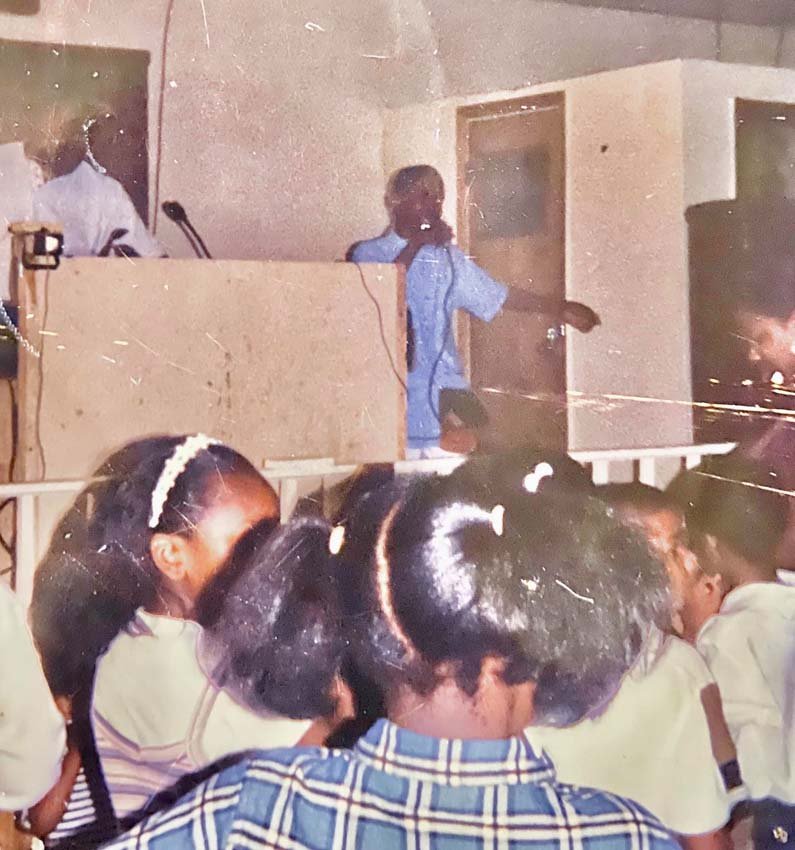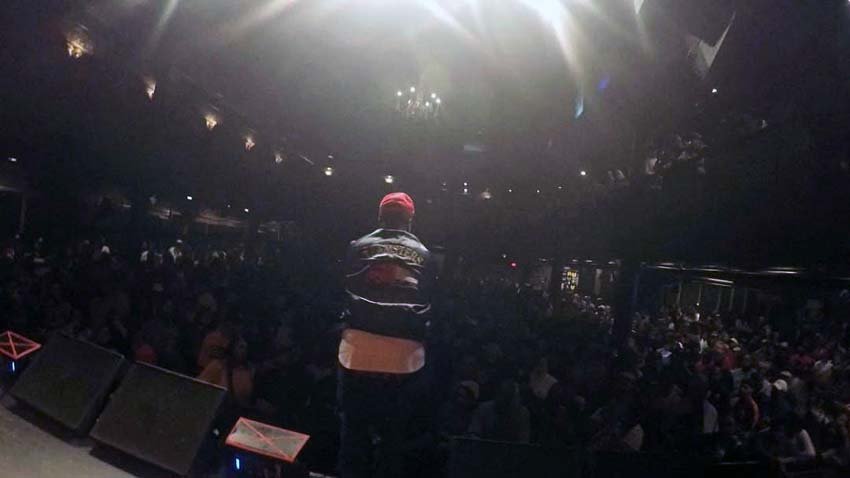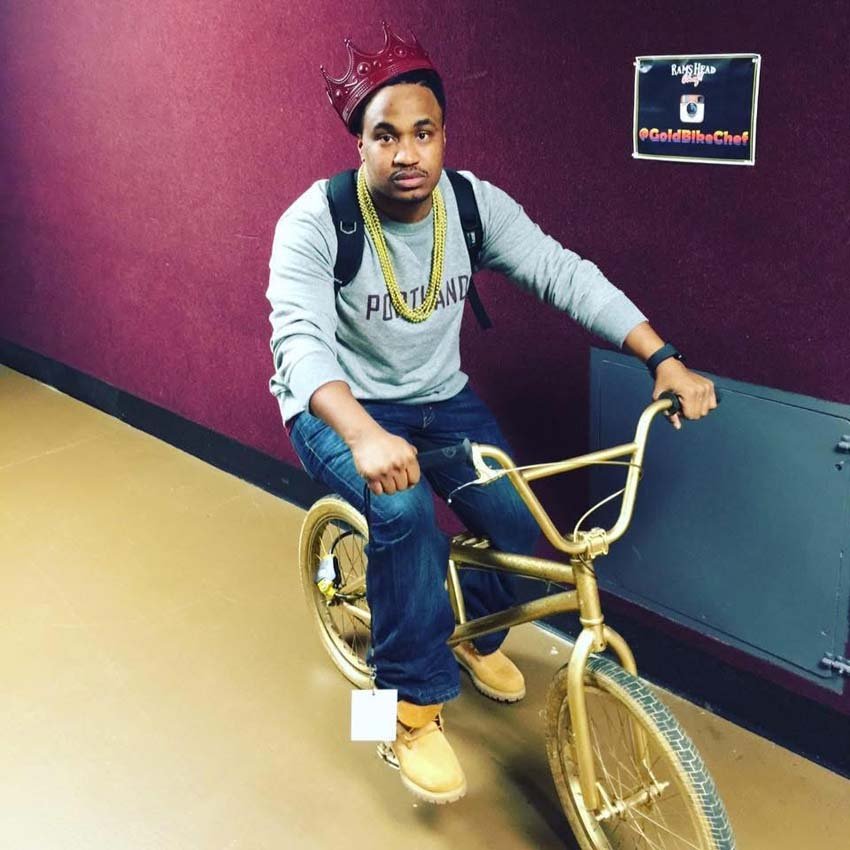+ By Jeff Muller
As with all great artists, Annapolis-born rapper Kojo Snowden’s journey is one of invention and reinvention. In his four decades on this planet, Snowden has turned tragedy into hope, bending the arc of his life in a positive direction that he can be proud to pass on to his three children and to all who have been lucky enough to discover his music.
Reinvention is central to Snowden’s story. Given the name Keylow at birth, he was renamed Kojo—a Ghanaian name that means born on a Monday—when he was very young because his father, Carl Snowden, was entering politics and worried that his birth name might be misunderstood by some, given its onomatopoetic similarity to a word used to describe a large quantity of drugs. In the racially charged 1980s, one had to be careful.
While his father has always been a key part of his life, Snowden grew up in a single-parent household with his mother, Bobbie Wilkins, and two older siblings—Maurice and Latoya—in Robinwood, one of Annapolis’ more infamous public housing communities. His early years were marked by the challenges of living in a place where crime and violence were a daily reality. As Snowden recounts, “I witnessed my first murder when I was 10 years old. It was May of 1995, and it’s a day I’ll never forget. Unfortunately, that was kind of normal for the people who lived in that part of the city.” Two years later, his cousin Cochise was shot and killed by a police officer. Despite these tragedies, he found solace and inspiration in music, which would eventually become his lifeline and path to success. But he would never forget these events, and they have lived on through his music.
Luckily for Snowden, he was surrounded by positive role models, with his mother playing a pivotal role. A hardworking woman who often juggled multiple jobs to provide for her family, Wilkins instilled in Snowden the values of perseverance and compassion. Known for her generosity, often sharing what little they had with neighbors who were even less fortunate, she had a spirit of giving and community support that left a lasting impression on Snowden, shaping both his outlook on life and his music.
Growing up, Snowden was heavily influenced by the sounds that filled his home. His mother was always listening to gospel and soul, while his siblings and other family members introduced him to the sounds of hip-hop. Maurice listened to Tupac Shakur, Latoya to Jay-Z and Lauryn Hill, another brother, Abayomi, to Mos Def (now known as Yasiin Bey), and his cousin to KRS-One and Shaquille O’Neal. These diverse musical influences laid the foundation for Snowden’s artistic journey. At the age of nine, he began writing his own music, initially adhering to his mother’s rule of no cursing or foul language. However, as he grew older and witnessed more of the harsh realities of his neighborhood, his lyrics became more aggressive and reflective of his experiences.
Snowden’s first significant performance on stage happened at the age of 11 during an Easter disco. This early exposure to performing in front of an audience ignited a passion that would drive him for years to come. By age 13, he had signed with a manager, who would take him up to New York to experience life in the studio and introduce him to successful artists, including Buddha Monk, who toured the world with the Wu-Tang Clan and Ol’ Dirty Bastard. Buddha Monk even introduced young Snowden to Ol’ Dirty Bastard. “Having Ol’ Dirty say, ‘That kid’s amazing,’ well, that put a battery in my back and made me want to work harder,” says Snowden.
Another key experience was a trip to Ghana with his father and brother Abayomi for his sixteenth birthday. This journey not only strengthened his bond with his family but also provided Snowden with a unique cultural experience that enriched his music. Performing at a school during the Pan-African Historical Theater Festival in Ghana was a highlight for Snowden, marking the beginning of his international exposure.
Snowden would continue to work hard at his art until 2003, when he graduated from high school and temporarily got caught up in the temptation of fast money. Like many young men in his situation, he started selling drugs and had several brushes with the law. Then came his moment of reckoning—and clarity. “Being in the courtroom and having to look back and see my mama crying and knowing that a drug dealer wasn’t who she raised, that hurt me bad,” he says. “I told myself that I was never gonna put her through anything like that ever again.”
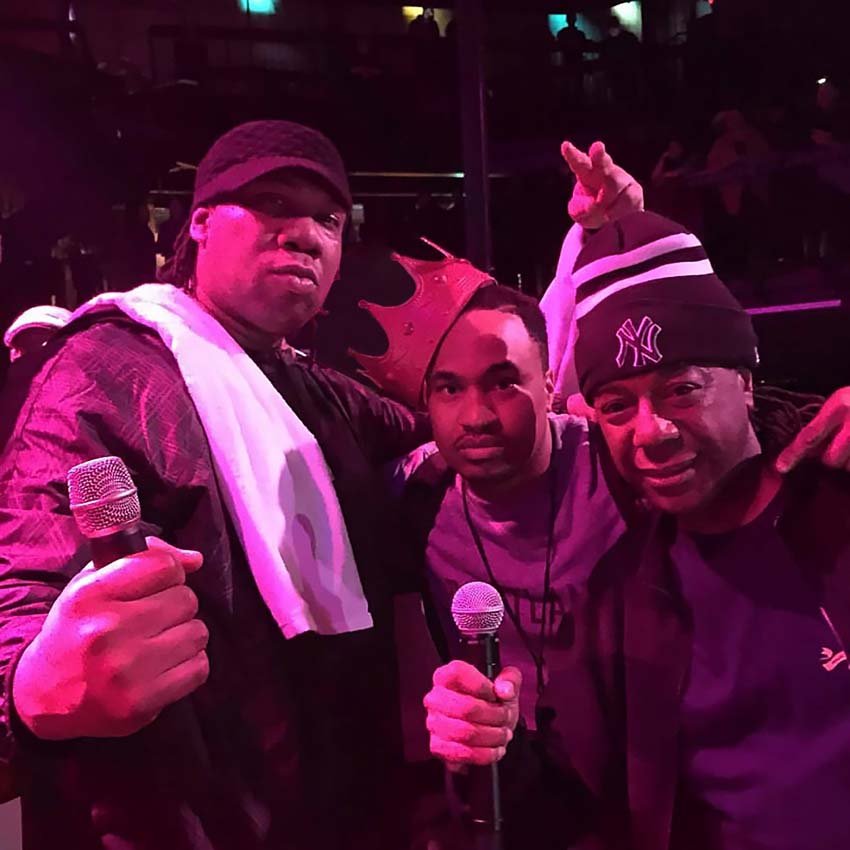
By 2009, Snowden had cleared up his legal issues and decided it was time to take his music career seriously. Using the moniker Kojo Hot Flow, he began booking at least 100 shows a year. His hard work and perseverance paid off, earning him opportunities to travel and share the stage with notable artists including Redman, Method Man, and KRS-One. In fact, KRS-One invited Snowden to rap with him on stage and bowed to him as he performed. These experiences not only validated his talent but also motivated him to continue pushing the boundaries of his artistry.
One key evolution happened following the birth of his son, in 2017. At that point, Snowden made the conscious decision to stop using curse words and the N-word in his music, wanting to set a positive example for his children. He didn’t stop rapping about the world he lived in—which is central to his art—he just started doing so with a slightly different vocabulary. As it happened, this shift in lyrical content opened new doors for Snowden, leading to invitations to perform at weddings, funerals, schools, and more festivals. Along with this shift in language, he elected to go back to using his given name for his shows, saying, “My dad made a mark with the Snowden name locally, and it’s my job to push it even further.”
Snowden’s journey is also marked by his commitment to give back to his community. He has performed at numerous local events and festivals, using his platform to inspire and uplift others. His music, which he describes as “reality rap,” serves as a voice for those who have experienced similar struggles and triumphs. One distinctive part of his show is called Story to Tell, when he cuts off the music and performs three or four a capella raps that are personal stories. These performances are known for their emotional depth and authenticity, often leaving a lasting impact on those who witness them.
A dedicated father, Snowden feels that his children have played a significant role in his artistic evolution beyond just his choice about language. One example is the F.A.M.E. Project, named for his youngest child, son Fame. Each year, on his son’s birthday, Snowden releases a group of four songs using FAME as an ever-evolving acronym. (The year of his son’s birth, it was faith, ambition, mercy, and effort.) Snowden has even had Fame, and his daughters, when they’re willing, add their voices to the recordings. This year, Fame stated that he plans to take over the series soon.
Snowden has released more than 80 mixtapes, with another to come this fall, and his story is one of resilience, transformation, and the power of music to change lives. And, in Snowden’s telling, that’s what matters. “I don’t want anyone to tell me I’m good. Just tell me that you can relate,” he says. “Because I want to know that I’m connecting with you on a deeper level. What I’m trying to do is penetrate culture. My goal is to make purpose popular.”
For more information, visit kojo440.com.
